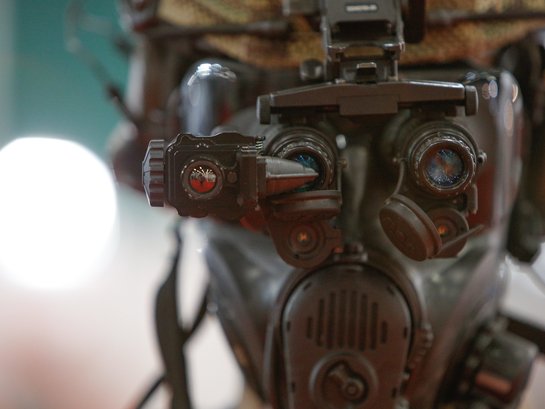Vita
Zahra Bagheri ist Wissenschaftliche Mitarbeiterin im Projekt Rüstungskontrolle und Neue Technologien am Institut für Friedensforschung und Sicherheitspolitik an der Universität Hamburg (IFSH). Zudem arbeitet sie am vom Auswärtigen Amt geförderten Projekt Muons for Peace. Vor ihrer Tätigkeit am IFSH studierte Zahra Bagheri Physik im Iran. Seitdem promoviert sie am Institut für Experimentalphysik der Universität Hamburg und erforscht Myonentomographie als Ansatz zur nuklearen Verifikation.
Forschungsprofil
- Astroteilchenphysik
- Muographie
- Nukleare Verifikation
Mitgliedschaften & Aktivitäten
- Doktorandin an der Universität Hamburg, Deutschland
Ausgewählte Veröffentlichungen
-
Davoudifar, Pantea,
Keihanak Rowshan Tabari,
Amir Abbas Eslami Shafigh,
Ali Ajabshirizadeh,
Zahra Bagheri,
Fakhredin Akbarian Tork Abad,
Milad Shayan. 2021.
Development of a Local Empirical Model of Ionospheric Total Electron Content (TEC) and Its Application for Studying Solar-Ionospheric Effects.
Scientific Reports
11: Article 15070.
DOI: 10.1038/s41598-021-93496-y.
-
Davoudifar, Pantea,
Zahra Bagheri. 2020.
Determination of Local Muon Flux Using Astronomical Charge Coupled Device.
Journal of Physics G: Nuclear and Particle Physics
47: Article 035204.
DOI: 10.1088/1361-6471/ab50c9.
-
Shayan, Milad,
Pantea Davoudifar,
Zahra Bagheri. 2017.
The Study of Variations of Low Energy Cosmic Helium’s Flux (up to 6 MeV) Due to Solar Activity.
Advances in Space Research
59 (8): 2186-2191.
DOI: 10.1016/j.asr.2017.01.035.
-
Bagheri, Zahra,
Pantea Davoudifar,
Gohar Rastegarzadeh,
Milad Shayan. 2017.
Application of CORSIKA Simulation Code to Study Lateral and Longitudinal Distribution of Fluorescence Light in Cosmic Ray Extensive Air Showers.
Journal of Astrophysics and Astronomy
38: Article 4.
DOI: 10.1007/s12036-017-9424-2.






